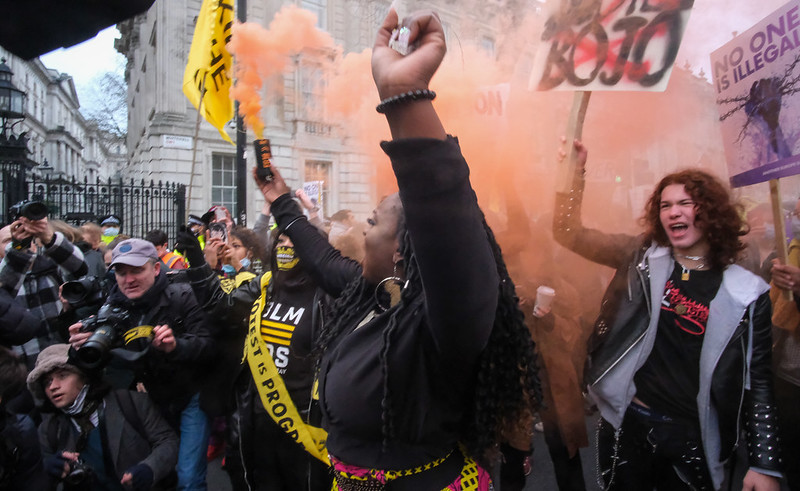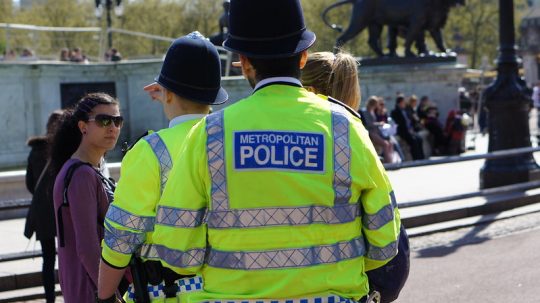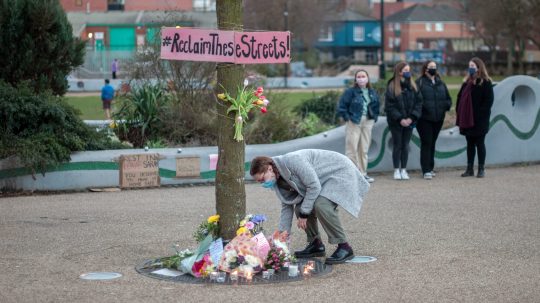A new report from the National Police Chiefs’ Council (NPCC), released 14 March 2023, presents the first national assessment of police performance on tackling violence against women and girls (VAWG).
The Tackling Violence Against Women and Girls (VAWG) – Policing Performance and Insights report brings together a national overview of the police response to VAWG, and, for the first time, national data on the number of police-perpetrated VAWG complaints and conduct cases has been published.
Only 6% of cases are closed with a suspect being charged
Between October 2021 and March 2022, the police recorded 1,177 police-perpetrated complaints and conduct cases of violence against women and girls. Meanwhile, of all recorded cases of violence against women and girls carried out only 6% were closed with a suspect being charged.
The NPCC also found that in cases that had been finalised, 70% of conduct allegations and 91% of complaint allegations resulted in a decision that no action was required.
The Casey Report finds the Met to be a ‘racist’, ‘sexist’, ‘boys club’
The NPCC’s findings give an insight into the national scale of the police perpetrated violence against women, however a report released on 21 March has condemned one force in particular: The Metropolitan police (Met).
Following the rape and murder of Sarah Everard by a serving police officer Wayne Couzens in 2021, Baroness Casey was appointed to review the force’s culture and standards.
The Casey report, which has now been published has found that there is a “boys’ club” culture that is rife within the Met and has warned that if it does not improve the Met police could be ‘dismantled’.
Fifteen Met officers have been convicted of serious offences since the murder of Sarah Everard in 2021 – with the majority committing sex crimes or violence against women.
The report stated that austerity had “disfigured” the Met, while contributing factors such as court backlogs and a growing population in the city has put the force under added pressure.
Police are ‘almost certain’ that sexual misconduct makes up most of police perpetrated VAWG
The NPCC stated that it is “almost certain” that inappropriate sexual conduct makes up most of police-perpetrated VAWG, as well as the highest risk cases.
For conduct cases, the number of domestic abuse and inappropriate sexual behaviour cases are probably higher than the data suggests.
The report also found that there is a poor and inconsistent collection, of data and that the quality and management of existing data means that the true scale of harm is ‘not fully understood’. In particular, there is a lack of data on different demographics for victims from marginalised communities.
Exposing the extent of issues with data collection
The report flags major gaps in demographic data, reflecting a longstanding concern of women’s organisations about a lack of understanding of the experiences and justice outcomes for minoritised groups. This is unacceptable. The police inspectorate HMICFRS has already stated that “lack of robust police data on victims’ ethnicity is a fundamental failing”.
The NPCC’s recognition of sexism and misogyny in policing is an essential step in the right direction. While the action of ‘rooting out individuals’ has been largely welcomed by the womens sector, some have argued that there is a need for a cultural shift to recognises that this is a institutional issue in policing rather than ‘one bad apple’.
Experts claim the data is the tip of an iceberg
Andrea Simon, director of the End Violence Against Women coalition (EVAW), said: “These figures are the latest in a tidal wave of evidence showing the shocking number of police officers getting away with perpetrating violence against women and girls. It’s clear from these latest national figures that very often, there are no meaningful consequences for police officers and staff who abuse women. In fact, these figures show that a lack of accountability is the norm, not the exception.”
Simon also expressed concern for women in the UK who often do not report violence they face. She stated: “We’re clear that this data is just the tip of the iceberg, given that many women choose not to report VAWG to the police, and this will be heightened when the perpetrator themselves is a police officer or staff member. This is particularly significant for Black and minoritised women, who routinely experience racist and sexist discrimination by the police and justice agencies.
Concern over widening police powers and human rights
Simon also expressed concern over new proposed legislation that if passed would give more power to institutions like the police.
The controversial Public Order Bill is receiving final amendments from Parliament and will receive Royal Assent before becoming an official Act.
Simon stated: “With the widely condemned Public Order Bill in the House of Lords, we’re hugely concerned that the government is pressing ahead with plans that will hand even more powers to a police institution that is not only failing to tackle VAWG but is harbouring perpetrators, and even enabling them to abuse their power with impunity.”
She continued: “The National Police Chiefs’ Council report also highlights how important it is that we have mechanisms to hold the police to account where they fail us. Threats to the Human Rights Act and ECHR [European Convention on Human Rights] fundamentally undermine this.”
Deputy Chief Constable Maggie Blyth, National Police Chiefs’ Council Coordinator for Violence Against Women and Girls, said: “Our publication [the report] reinforces the urgency and importance of our current mission to lift the stones and root abusers and corrupt individuals out of policing alongside delivering the long term, sustainable improvements to standards, vetting and misconduct processes we have promised. ”





